Synthetic System Benchmarks
We are going to start with synthetic system application benchmarks on this page. Gaming performance will be shown later on. Note that the graphs are arranged from fastest to slowest, and the Ryzen 7 5800X3D bar is highlighted in a lighter color to differentiate it.
PCMark 10
Standard PCMark Benchmark
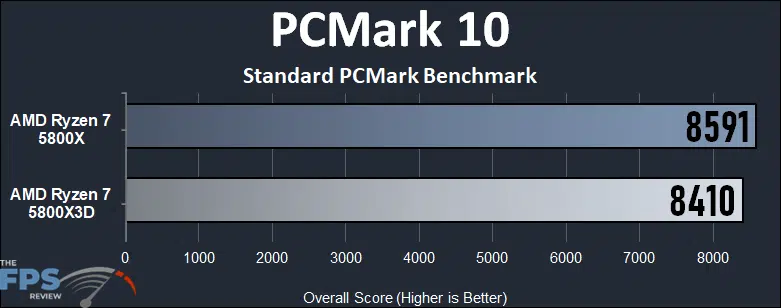
In the first graph, we are looking at PCMark 10 standard benchmark test, which is an overall system test. PCMark 10 runs a gauntlet of different office, content creation, and desktop workloads. We start off with the Ryzen 7 5800X being about 2% faster than the Ryzen 7 5800X3D in this overall system test, which comes down to the CPU clock speed boosting difference.
PCMark Application Benchmark
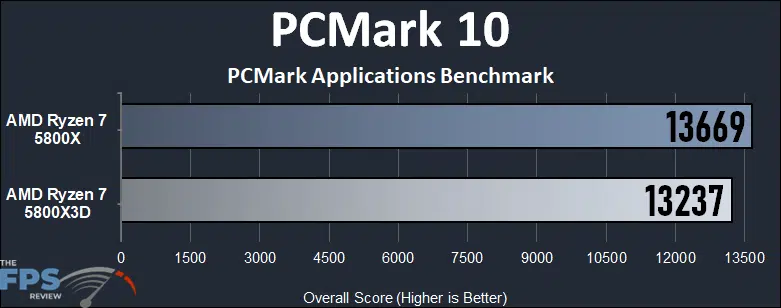
In this graph, we are looking at PCMark 10’s Applications Benchmark. This test is very specific, it tests the performance of Microsoft Office, using Excel, Word, PowerPoint, and even Edge. We are using Microsoft Office 2021 for these tests. Again we find the Ryzen 7 5800X is faster than the Ryzen 7 5800X3D in Microsoft Office by 3%. The extra L3 cache on the 5800X3D makes little difference in MS Office, the higher turbo boost frequency on the 5800X makes more of a difference, the clock speed matters here.
3DMark
CPU Profile
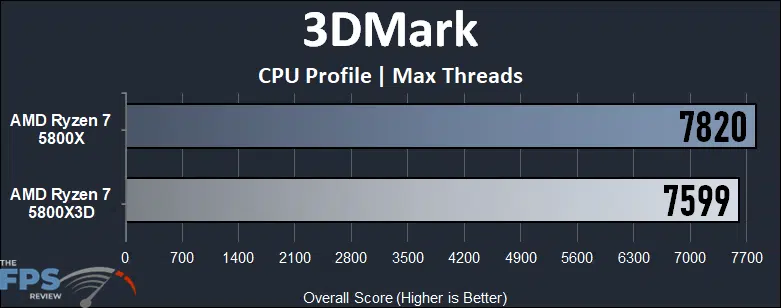
We are using 3DMark Professional’s CPU Profile test. This test specifically tests CPUs and reports an overall score, it tests various thread counts. We are going to report on the “Max Threads” and “1-Thread” results only. In 3DMark’s Max Threads CPU test we once again find the Ryzen 7 5800X to be faster than the 5800X3D by 3% due to the higher clock speed.
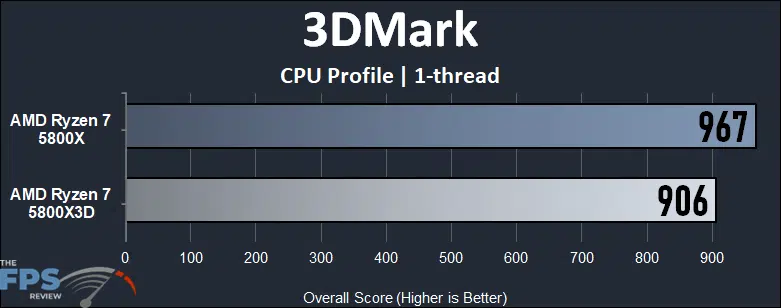
The same follows true for single-thread testing, where the Ryzen 7 5800X is 7% faster than the Ryzen 7 5800X, all because of that higher 200MHz boost clock the 5800X can do in single-threading workloads.
Geekbench 5
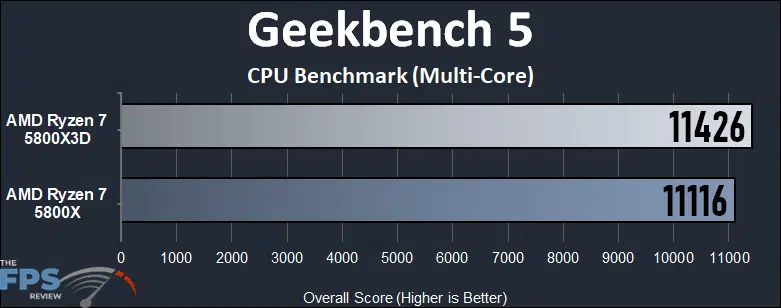
In Geekbench 5 it indicates that the Ryzen 7 5800X3D is 3% faster than the Ryzen 7 5800X in multi-core testing. This is the one application test where it showed the 5800X3D being faster than the 5800X, all other tests as you will see show it the other way around. 3% is very close overall between the CPUs anyway, so even though it’s technically faster in this test, it’s not by a wide margin, only a narrow one.
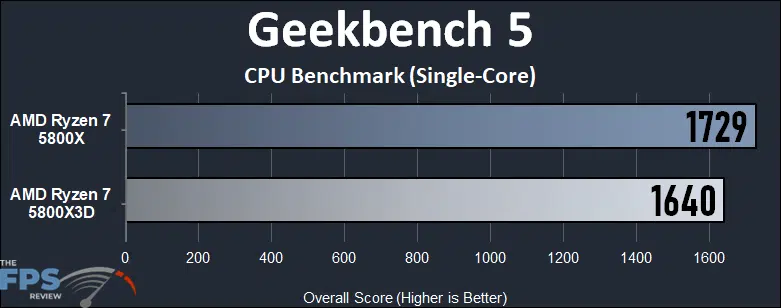
In Geekbench 5’s Single-Core testing it flips back around again and shows the Ryzen 7 5800X being 5% faster than the 5800X3D in single-core performance. This aligns with the other synthetic benchmarks above. There is a higher degree of difference in single-thread testing because the 5800X is boosting higher in single-core, versus all-core, so it ends up being that much faster over the 5800X3D because of clock speed.
PassMark Performance Test
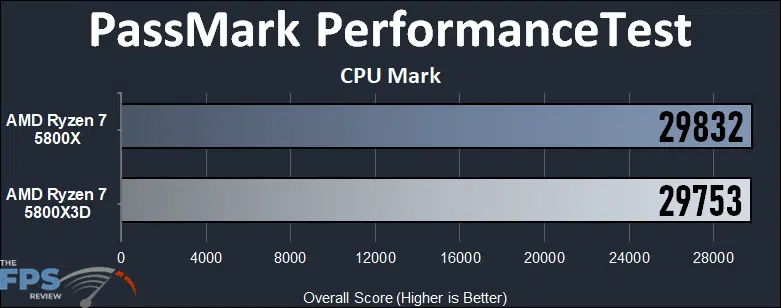
PassMark’s PerformanceTest CPU Mark benchmark tests various CPU workloads, including encryption. In PassMark PerformanceTEST the two CPUs are very close, within 0.2% of each other on performance, therefore practically the same, with no major differences in performance in the battery of tests PassMark runs. This is perhaps showing that in the right circumstances the extra L3 cache on the 5800X3D can make up for the frequency difference between the CPUs and at least equal the 5800X in performance, given the right workloads.
